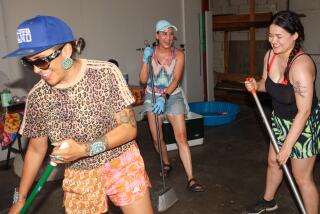At this Florida camp, believers can ask for healing or a chat with the dead
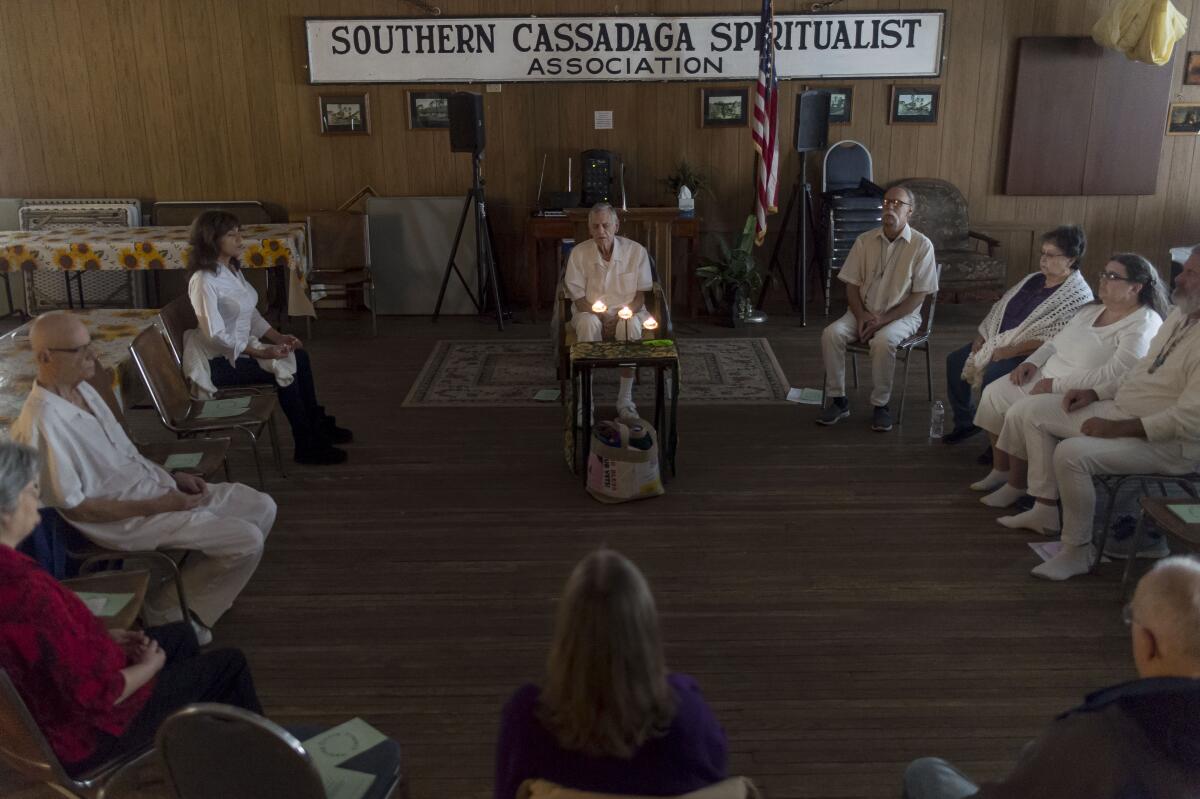
CASSADAGA, Fla. — Once word is given, the 20 or so chairs in the back of the Colby Memorial Temple fill with believers young and old.
The healing is about to begin.
The six healers work one-on-one, hovering their hands over the heads of the believers. The only touch comes at the end, a tap on the shoulder to indicate it is time to rejoin the rest of the congregation in the pews of the main sanctuary.
It takes the healers about 15 minutes to work through the group.
The scene plays out every Sunday morning in the 125-year-old Cassadaga Spiritualist Camp, the country’s largest full-time assemblage of mediums, psychics and healers.
They are clergy in a religion called Spiritualism, which teaches the golden rule, counts an “infinite intelligence” as its deity and claims to put believers in touch with the dead.
A CBS news correspondent once dubbed Cassadaga the “psychic capital of the world.” The camp was also immortalized in the song “Casa Dega” by Tom Petty, who would describe it as “this town in Florida that has 35 acres of weird people.”
He was wrong about the land area. It’s 57 acres.
As for the weird, that’s always debatable.
Barbara Girtman, who represents the camp on the West Volusia County Commission, says she understands that 80% of people might see it that way.
“But then there are the other 20%,” she said. “I think a lot of people see this as cool but weird. There is a uniqueness in the energy and having a story to tell that is so different than any other area.”
Located five miles off the interstate between Orlando and Daytona Beach, the complex includes 55 houses, two apartment buildings and a bookstore that sells T-shirts that proclaim: “Where the Twilight Zone meets Mayberry.”
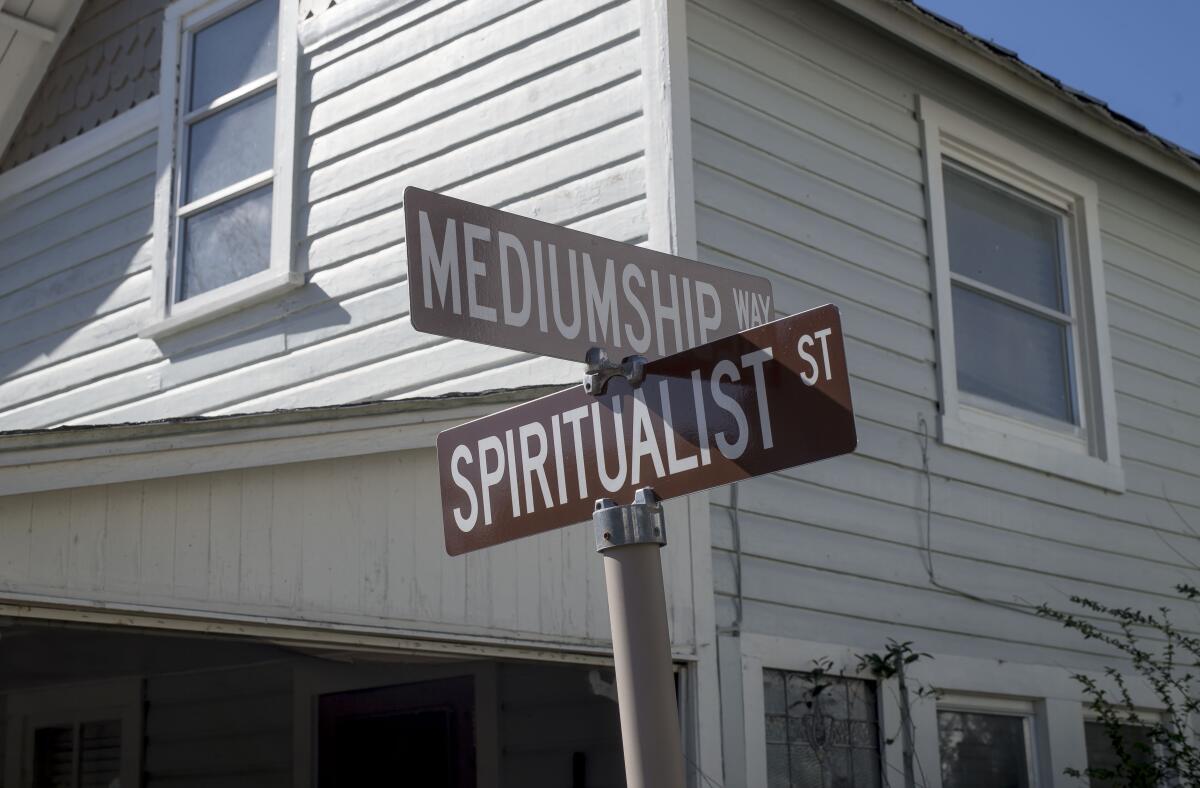
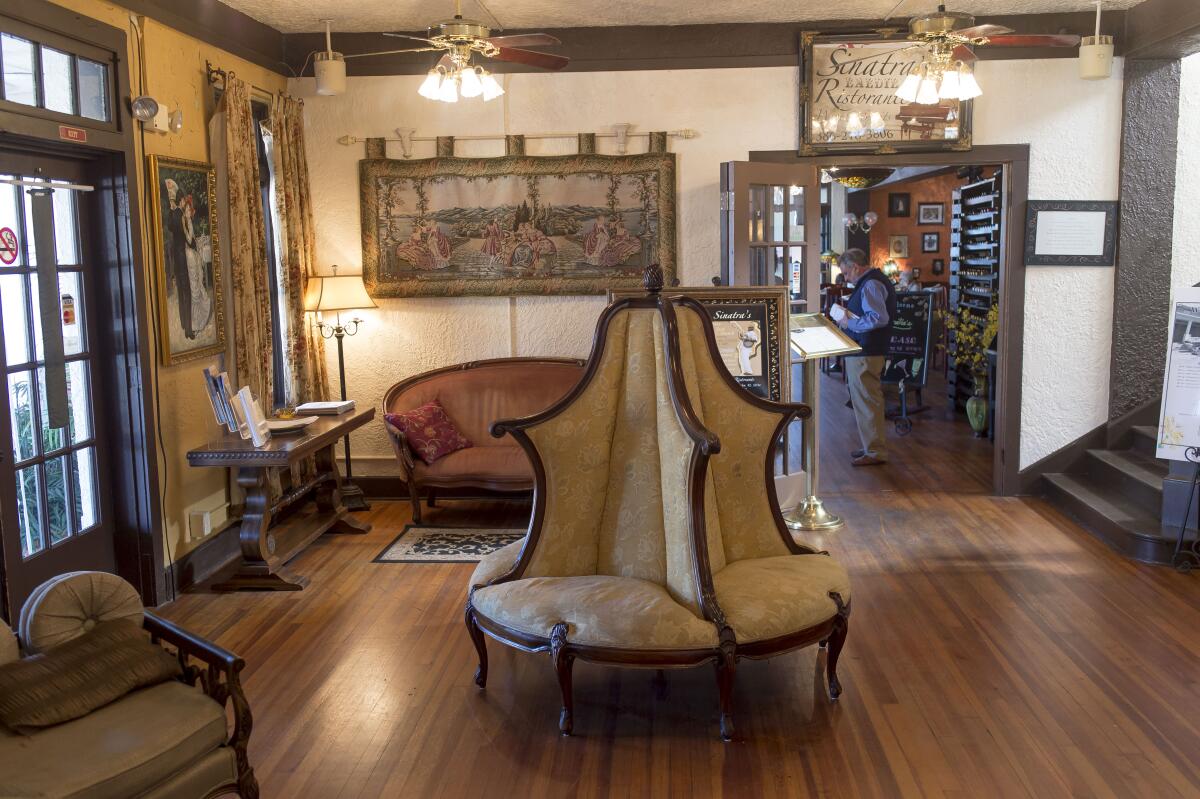
As many as 2,000 people gather there each weekend. Some are true believers and attend the services, which often include down-to-earth sermons from guest clergy. Others are curious tourists who come to browse the bookstore or perhaps check in with dead ancestors.
If you don’t have an appointment for a reading, just go to the bookstore, where you can flip through a binder of 50 registered spiritualists and call them on the adjacent phone to see if they are available.
The Rev. Maeda Jones charges $80 for half an hour.
“It’s a decent living,” said Jones, who lives in one of the houses. “It’s not like we’re scraping pennies. But it’s also not like we’re going to retire and move to Hawaii.”
Her bio picture shows her with a dog. She says she has seen an uptick in people wanting to communicate with deceased pets.
“Animals are telepathic when they are here,” she said. “So, it’s only a hop, skip and a jump for them to communicate from the other side.”
Clients “will cry harder for their dog than they will for their mom,” she said.
The spiritual advisors are obligated to follow a code of ethics when dealing with clients.
“We’re not supposed to tell them when they are going to die,” Jones said. “We’re not supposed to diagnose diseases. The basic rule of thumb is, if we see something coming and there is nothing the person can do about it, why even bring it up?
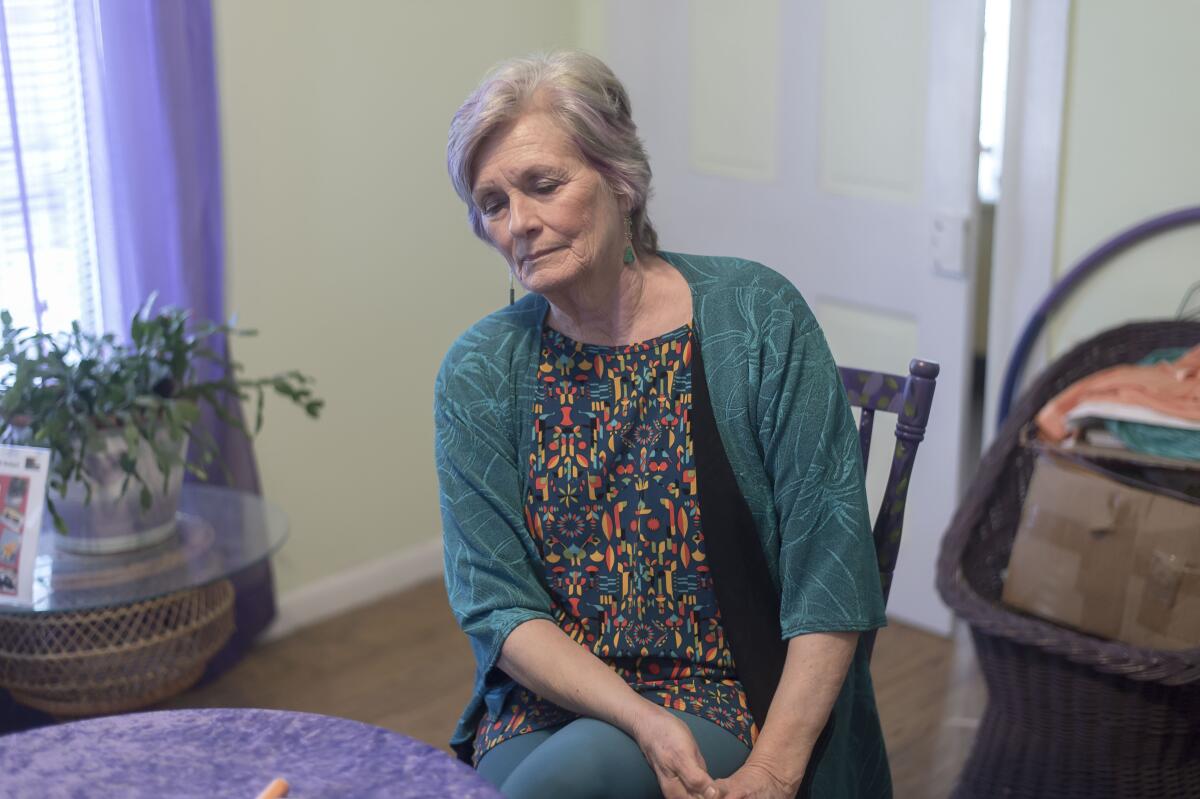
Spiritualism as it’s practiced today started around 1840 and reached its peak about 60 years later, when it was estimated there were as many as 9 million believers in the U.S. and Europe.
The religion has since withered, especially in the United States, where there are thought to be no more than 150,000 adherents. There is no central church, only various sects scattered around the country.
The faithful over the years have included Harry Houdini, Sir Arthur Conan Doyle and Shirley MacLaine.
Cassadaga owes its existence to George Colby, a medium and lecturer who gained some degree of fame traveling the East and the Midwest doing psychic readings.
He was in Iowa when he was told by one of his spirit guides, a Native American named Seneca, that he would go on a great journey. So, in 1875 he took the train to Jacksonville, Fla., which was as far as the line went.
Then he switched to a steamboat and came down the St. Johns River to a spot called Blue Springs Landing. Using pack mules, he cut through the Florida brush and stopped about 10 miles away in what would become Cassadaga. The camp opened in 1894.
Colby said he had seen the spot in a séance many years before.
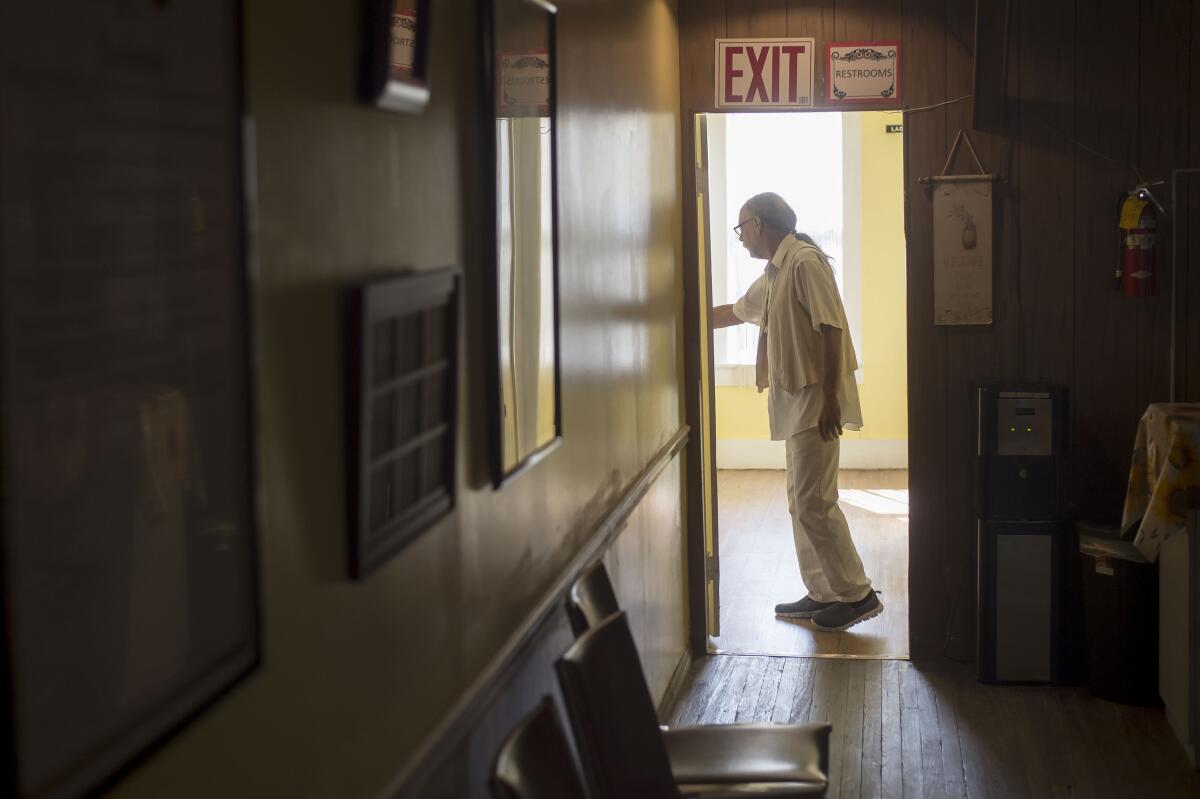
Cassadaga today is a self-sustaining community with a modest budget of about $230,000, most of which comes from bookstore sales and donations. Other than a few maintenance people and those who work in the bookstore, the community is run by volunteers.
All of the mediums, psychics and healers are independent contractors who generally own their own homes, but Cassadaga owns the land.
Most of the residents received their training at Cassadaga. It generally takes from four to six years to become a certified medium, psychic or healer.
The course load is usually a couple of mediumship classes weekly for several years. A standard donation is $20 a session.
The curriculum also includes the history of Spiritualism, ancient Spiritualism, comparative religions, platform decorum, and continuing education in ethics.
Students are also required to participate in spirit readings that are offered several times a week free of charge to the public. Feedback comes from questionnaires filled out by those who get readings.
The Rev. Diane Davis, who grew up in a family of psychics, started her training in 1973 after flunking out of college and signing up for a reading to explore her own psychic gifts.
“When I came for a reading, there was only one person who was a reader who was younger than 60 years old,” she said. “There were not all the houses. It was like coming out into the middle of nowhere.”
Davis received her certification as a medium in 1978 and started doing readings
“We’re just like a group of dentists,” she said. “Some of them are really good and some of them are just OK. … No psychic or medium is 100% accurate. If they are 80% accurate, they are pretty good because what you are getting is coming through a human and interpreted in their own brain.”
Some residents joke about the daily problem of living in a place where, in theory, everyone has the potential to read one another’s mind.
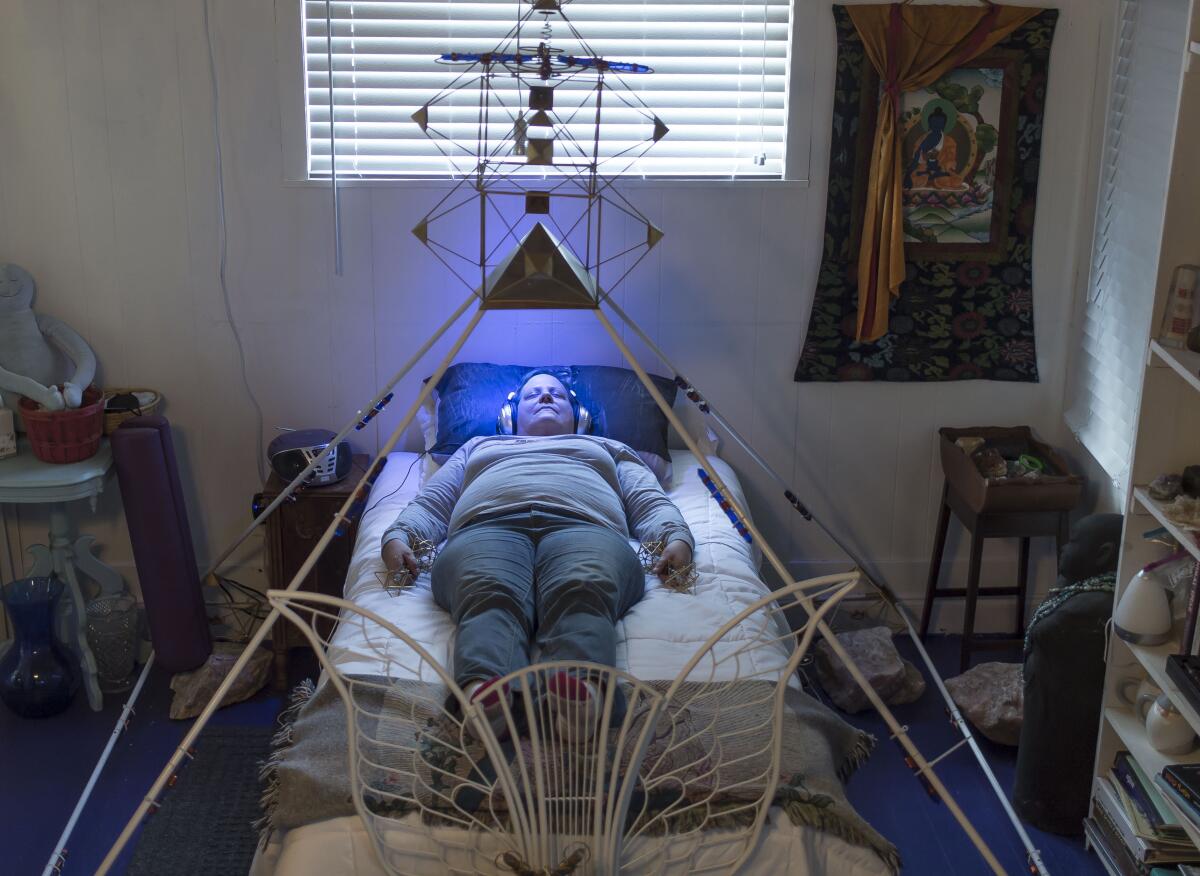
“It can be a little tough at times because we try to stay out of each other’s business as much as we can,” said Lori Carter, who uses clairvoyance (seeing), clairsentience (feeling) and claircognizance (just knowing without evidence). “But sometimes, you just get hits.”
Anyone can attend the church or take classes.
Beverly Robinson, from nearby DeLand, has been a regular at church for about three years but has been coming for readings for almost 30 years.
“I was raised Roman Catholic but walked away from it,” she said. “The fact that people here are non-judgmental was a big drawing factor. It’s very warm, very loving. I used to think it was a gift that very few people had. Now I see everybody’s got that gift.”
More to Read
Sign up for Essential California
The most important California stories and recommendations in your inbox every morning.
You may occasionally receive promotional content from the Los Angeles Times.

